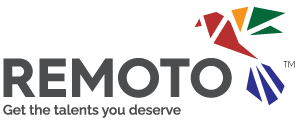The traditional workplace can be far from equal, but remote working presents different challenges for ensuring diverse hiring practices and creating an inclusive recruitment process.
With so much of the recruitment process now conducted online, it’s essential that employers take greater responsibility towards fostering equality in their hiring methods to ensure a fair outcome for all candidates.
In this blog post, we’ll explore 10 essential ways to improve your recruitment processes. These strategies will help you maintain fairness and impartiality in identifying the best candidates for each role, regardless of their location.
Understand the Need for Inclusivity in Remote Recruitment
Creating an inclusive workplace is more important than ever before, especially in the world of remote recruitment. By focusing on diversity and inclusivity, companies can attract the best possible talent, regardless of their background or location.
An inclusive remote hiring strategy not only leads to more diverse teams but also creates a more dynamic and supportive work environment. It’s essential to adopt inclusive practices in recruitment to ensure every applicant has a fair shot at joining your team.
By prioritizing inclusivity in the hiring process, companies can not only foster creativity and innovation but also build a strong company culture that values every employee’s unique perspective and experience.
Research into the Hiring Practices of Other Companies
As companies strive to attract top talent in an ever-evolving job market, it’s only natural to wonder how to differentiate one’s organization from the competition. This is where research into hiring practices of other companies can prove invaluable.
By exploring the various approaches that other companies have taken to attract and retain talent, one can gain valuable insights into best practices that can be applied to their own recruitment efforts.
Whether it’s through analyzing the wording of job postings, evaluating the candidate experience from start to finish, or exploring innovative techniques such as gamification or video interviews, there’s always something to learn from others in the industry.
In short, taking the time to study the hiring practices of other companies can be an effective way to improve one’s own recruitment processes and ultimately gain a competitive edge in the race for top talent.
Identify Unconscious Bias and How It Can Impact Recruitment
When it comes to recruitment, we often rely on our instincts to make decisions based on a candidate’s qualifications and experience. However, sometimes our instincts can be influenced by unconscious bias.
These biases are often based on societal stereotypes and can impact our assessment of a candidate’s suitability for a position. For instance, we may have a bias towards hiring a candidate from a certain background or with a certain educational pedigree. This can limit our pool of potential candidates and result in a less diverse workforce.
It’s important for recruitment professionals to recognize and address their unconscious biases to ensure that they are making fair and informed hiring decisions. By doing so, they can help create a more inclusive and diverse workplace.
Check out this video if you’re interested in learning more about unconscious bias!
Ensure Job Postings Are Written Without Biases
When it comes to job postings, gender or language bias can unknowingly creep in, turning off potential talented candidates. It’s important to ensure that the language used in job postings is inclusive and free of bias to attract a diverse pool of candidates.
Inclusivity in the language used can contribute to a workplace culture where all employees feel valued and respected. By avoiding gendered words and stereotypical language, employers can show that they are committed to diversity, equality, and inclusion.
Incorporate Diversity into the Interview Process
Diversity and inclusivity in recruitment are imperative for any business, and they should be reflected in the interview process. Inclusive interview questions and scenarios will provide a fair opportunity for candidates from different backgrounds to showcase their skills and experiences.
Employers who create an environment that openly embraces diversity will not only attract a wider pool of applicants, but also foster a company culture of acceptance and respect. So, it’s time to think beyond the typical interview questions and scenarios and make way for a more inclusive and diverse workplace.
Use Tools for Objective Decision-Making
Making objective decisions is key to success. Fortunately, there are a variety of tools available to help make these decisions, such as competency tests or coding challenges. These objective measures take the guesswork out of the decision-making process by assessing specific skills or knowledge, providing quantifiable results that can inform your hiring or promotional decisions.
With the use of such tools, you can ensure that you’re making informed, objective decisions that will ultimately benefit your company. So,
why leave anything to chance when you can utilize these powerful decision-making tools at your fingertips?
Create Transparent Communication Channels
Clear communication is the backbone of any successful relationship, and the hiring process is no exception. Applicants crave transparency and open communication channels with hiring managers, and rightfully so.
In order to attract top talent and maintain a positive employer brand, companies need to prioritize creating these transparent channels.
By doing so, candidates feel valued and respected throughout the application process, leading to a higher likelihood of accepting a job offer and spreading positive word-of-mouth about their experience.
In turn, hiring managers can make more informed decisions and ensure they are hiring the best candidates for the job. It’s a win-win situation that benefits both parties involved.
Encourage Anonymous Feedback
How can we ensure that our recruitment process is up to the mark? Anonymous feedback from applicants can be a powerful tool to identify gaps in the process and improve it.
By providing a platform for applicants to express their views without fear of repercussion, we can gain valuable insights that can help us fine-tune our process. Whether it’s the length of the interview process or the clarity of job descriptions, we can get a first-hand account of what is working and what needs improvement.
Using anonymous feedback can not only improve the recruitment process but also enhance the employer brand as it shows potential candidates that the company values their feedback and is committed to a transparent process.
Implement an Equal Employment Opportunity
As the workforce becomes increasingly diverse, it’s important for businesses to adopt policies that promote fairness and equality in recruitment. One way to achieve this is by implementing an Equal Employment Opportunity policy.
This policy not only prohibits discrimination based on age, race, gender, religion, and other protected characteristics, but it also promotes diversity by actively seeking out qualified candidates from underrepresented groups.
Monitor Progress and Adjust Policies as Needed
Creating an equitable environment is not a one-time achievement. Keeping it equitable requires an ongoing effort to monitor progress and adjust policies as necessary. This means proactively examining data and feedback on a regular basis to ensure that everyone in the space, virtual or physical, has equal opportunities and treatment.
Adjusting policies to fit the evolving needs of the community or workplace is an integral part of maintaining an equitable environment. While it may take time and effort, the result is a more inclusive and supportive environment where everyone has the opportunity to thrive.
Conclusion
Recruitment is a continuous work in progress that requires constant reimagining and review. We must ensure that this process is fair, unbiased and inclusive of all members of society regardless of background or identity to build a truly equitable workplace.
Therefore, we must take affirmative action to make sure hiring processes are as diverse and transparent as possible. A good place to start would be by engaging in the 10 practices listed above.
It’s also essential that businesses prioritize remote inclusion within their recruiting strategy if they are to stay ahead of the ever-changing technological landscape. This requires proactive steps towards rectifying any existing inequalities or potential imbalances in their hiring practices.














